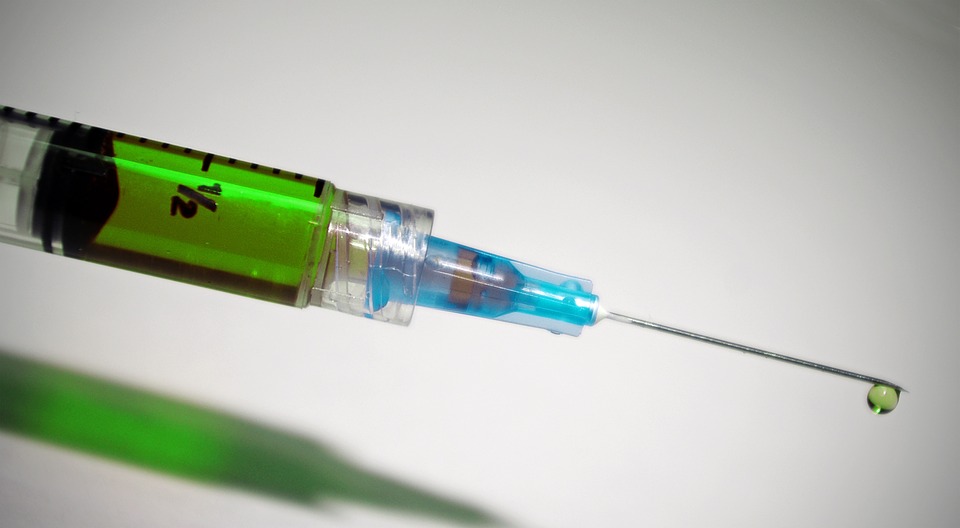FDA approves disintegrating tablet for children with ADHD, even though the “father” of the “disorder” admitted it was a pseudo-illness
02/01/2016 / By Greg White

The US Food and Drug Administration (FDA) recently approved the first disintegrating tablet for children suffering from attention-deficit/hyperactivity disorder (ADHD) – a disease that does not really exist. If you or someone you know has been diagnosed with ADHD, chances are, you wouldn’t need a disintegrating tablet in the first place. That is, at least according to the insights of the “father” of ADHD, Leon Eisenberg, who admitted on his deathbed that the illness was a “fictitious disease.”(1,2)
That means millions of children around the world have been diagnosed for a disorder and treated with mind-altering drugs for a malady existing nowhere but in the imagination of Eisenberg.
According to Bradlee Dean, host of The Sons of Liberty, ADHD was merely a conjecture proposed by Eisenberg. However, in order for a hypothesis to hold any merit, it must be testable. Yet, ADHD was never shown to exist in a lab. It encompasses a general set of arbitrary symptoms, which nearly everyone experiences from time to time.(2)
Banking in on the ADHD cash cow
Nevertheless, Eisenberg and his colleagues have made a significant profit from the pseudo-illness. Despite Eisenberg’s admission that the disease is fictitious, this has not prevented the pharmaceutical industry from banking in on the ADHD cash cow. Modern psychiatry continues to pump out a steady stream of ADHD medications, including Ritalin, Adderall and, most recently, Adzenys (a mix of amphetamine and salts).(2)
According to makers of the drug, stimulant medications like amphetamine and methylphenidate are the standard treatment for ADHD. They purport most existing treatments are packaged as tablets and capsules that need to be swallowed whole or sprinkled onto certain foods. Orally disintegrating tablets, on the other hand, are designed to disintegrate in the mouth, making it easier for children to ingest.(1)

“ADHD is fraud intended to justify starting children on a life of drug addiction” notes Dr. Edward C. Hamlyn, a founding member of the Royal College of General Practitioners. This sentiment rang true with respect to psychiatrists Peter Breggin and Sami Timimi, both of whom claim ADHD is closer to a social construct than a disease with roots grounded in biology.(2)
Most mental disorders are overly diagnosed for incentive purposes
As is the case with most overly diagnosed mental disorders, ADHD was marketed by the drug industry to create bigger profits. The Citizens Commission on Human Rights International (CCHRI) reports that approximately 20 million American children today are taking dangerous and expensive drugs for pseudo-illnesses like ADHD. In addition, at least one million children have been admittedly misdiagnosed due to spurious behavior conditions.(2)
“Remember, there are two ways drug companies can make money: Invent new drugs, and invent new diseases already invented drugs can treat,” notes Dr. Jay Parkinson, M.D., M.P.H. “In the past decade or so, Big Pharma has created no less than 10 new novel drugs per year.”(2)
Dr. Parkinson goes on to emphasize that many people who have been led to believe that they have ADHD are actually suffering from “the consequences of bad design.” In particular, both the educational system and the medical industry don’t like dealing with people on an individual level. Instead, they prefer to paint the masses with a broad brush.(2)
“The psychiatric/pharmaceutical industry spends billions of dollars a year to convince the public, legislators and the press that psychiatric disorders such as Bi-Polar Disorder, Depression, Attention Deficit Disorder (ADD/ADHD), Post Traumatic Stress Disorder, etc. are medical diseases on par with verifiable medical conditions such as cancer, diabetes and heart disease,” according to the CCHRI. “Yet unlike real medical disease, there are no scientific tests to verify the medical existence of any psychiatric disorder.”(2)
Sources include:
(1) MedScape.com
(2) NaturalNews.com
Submit a correction >>
Tagged Under:
adhd, Big Pharma, fake mental disorders, Leon Eisenberg, psuedo illnesses
This article may contain statements that reflect the opinion of the author





















